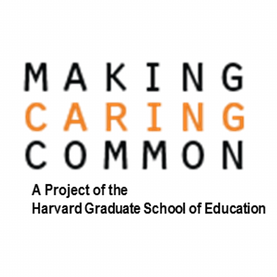 Earlier this week, 300 colleges signed a very welcome paper addressed to students applying to college this fall in the midst of a global pandemic and recession. Titled Care Counts in Crisis: College Admissions Deans Respond to COVID-19, it was published by the Making Caring Common Project at Harvard’s Graduate School of Education. Just reading their mission statement soothes me and makes me optimistic for the future of humanity: “Our vision is a world in which children learn to care about others and the common good, treat people well day to day, come to understand and seek fairness and justice, and do what is right even at times at a cost to themselves. We believe that young people with these capacities will become community members and citizens who can strengthen our democracy, mend the fractures that divide us, and create a more caring, just world.” One of their reports specifically addresses the role that this kind of behavior can play in the college admissions process: Turning the Tide: Inspiring Concern for Others and the Common Good Through College Admissions. In the report, they encourage college admissions offices to prioritize “concern for others […] among high school students,” and in this way to create greater access for disadvantaged students and to lower the pressure and anxiety that many students feel about applying to college. So I was thrilled to see colleges look inwardly and demonstrate their own caring toward the students they engage in the admissions process. I was thrilled to see colleges use the power and influence they have over teenagers who are desperate for their approval to make things a little easier, a little better, and little kinder right now. In Care Counts in Crisis, they identify five things that they value in their applicants at this moment: 1. Self-care: “We […] recognize that this time is stressful and demanding for a wide range of students for many different reasons. We encourage all students to be gentle with themselves during this time.” 2. Academic work: “We recognize that you may face obstacles to academic work. We will assess your academic achievements in the context of these obstacles. […]No student will be disadvantaged because of a change in […] plans because of this outbreak. 3. Service and contributions to others: “We value contributions to one’s communities for those who are in a position to provide these contributions. We recognize that […] many students are not in this position because of stresses and demands.” 4. Family contributions: “Many students may be supervising younger siblings, […] or caring for sick relatives or working to provide family income, and we […] view substantial family contributions as very important. 5. Extracurricular and summer activities: “No student will be disadvantaged for not engaging in extracurricular activities during this time. […]We have never had specific expectations for any one type of extracurricular activity or summer experience and realize that each student’s circumstances allow for different opportunities. And beyond just reassuring students that they “emphatically, do not seek to create a competitive public service ‘Olympics’ in response to this pandemic. [That] what matters […] is whether students’ contribution or service is authentic and meaningful to them and to others,” they are also encouraging students to take action for the things they believe in. Because while we are currently dealing with a deadly virus and a devastating economic downturn, we have been dealing with and continue to deal with systemic racism and sexism, climate change, and income inequality. So if you’re feeling called to “forms of contribution that are unrelated to this pandemic, such as working to register voters, protect the environment, combat racial injustice and inequities, or stop online harassment among peers,” colleges are fully on board with that too. This is exactly the conversation I’ve been having with my students for the last few months, reassuring them that colleges will understand that second-semester grades are pass/fail, that the internship they got at a local hospital was canceled, that their plans to work this summer and save money are no longer feasible. I believed that colleges would genuinely look at a student in the context of everything that is going on and make decisions with generosity. But it is really nice to have that in writing, from eight pages worth of colleges like Yale, Georgia Tech, and University of Colorado Boulder. So thank you, colleges, for putting your names on this, for walking the walk, and for showing students that caring in college admissions is, in fact, common.
0 Comments
Leave a Reply. |
What is the When I Was 17 Project?When I Was 17 is a blog series dedicated to collecting the varied stories of people's career paths, what they envisioned themselves doing when they were teenagers and how that evolved over the course of their lives. I started this project with the goal of illustrating that it's okay not to know exactly what you want to do when you're 17; many successful people didn't, and these are a few of their stories.
Archives
October 2020
|